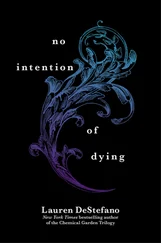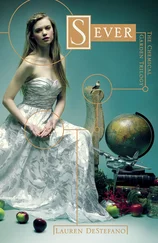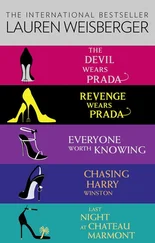In the days to follow, Linden barely acknowledges his brides. Our bedroom doors are unlocked and we’re mostly left to ourselves, allowed to wander about the floor, which has its own library and sitting room, but not much else. We aren’t permitted to use the elevator unless he invites us to dinner, which happens rarely; usually our meals are brought on trays to our bedrooms. I spend a lot of time in an overstuffed chair in the library, thumbing through brilliant pages of flowers that no longer grow in this world, and some that can still be found in other parts of the country. I educate myself on the polar ice caps, vaporized long ago by warfare, and an explorer named Christopher Columbus who proved the earth was round. In my prison I lose myself in the history of a free and boundless world that’s long dead.
I don’t see my sister wives often. Sometimes Jenna will take a couch beside me and look up from her novel to ask me what I’m reading. Her voice is timid, and when I look at her, she flinches like I might hit her. But beneath that timorousness there’s something more, the remains of a broken person who had once been assured, strong, brave. Her eyes are often bleary and misting with tears. Our conversations are measured and brief, never more than a sentence or two.
Cecily complains that the orphanage didn’t do a good job teaching her to read. She’ll sit studiously at one of the tables with a book and sometimes spell a word out loud, waiting impatiently for me to pronounce it and sometimes tell her what it means. Though she is only thirteen, her favorite reads are all about childbirth and pregnancy.
But for all her shortcomings, Cecily is something of a musical prodigy. I can hear her sometimes as she plays the keyboard in the sitting room. The first time, I was drawn to the threshold well past midnight. There she sat, this tiny body with flame red hair, trapped in a hologram of flurrying snow that was projected from somewhere on the keyboard. But Cecily, who is so dazzled by the false glamour of this mansion, played with her eyes closed. Lost in her concerto, she was not my little sister wife in a winged dress, or the same girl who throws silverware at the attendants who cross her on the wrong day, but rather some otherworldly creature. There was no ticking time bomb inside of her—no indication of this horrible thing that will kill her in a few short years.
She’ll play more clumsily in the afternoons, tapping the keys in nonsensical patterns to amuse herself. The keys won’t work unless one of the hundreds of hologram slides is inserted into the keyboard to accompany the music: rushing rivers, a sky full of glittering fireflies, speeding rainbows. I have never seen her use the same hologram twice, and yet she scarcely acknowledges any of them.
There’s no shortage of illusions in the sitting room. The television can, at the press of a button, simulate a ski slope or an ice rink or a racetrack. There are remotes, steering wheels, skis, and a whole assortment of controllers to replace the actual world. I wonder if my new husband grew up in this way—trapped within this sprawling mansion, with only illusions to teach him about the world. Once when I was alone, I tried my hand at fishing, and, unlike with the real thing, I excelled at it.
In my abundance of time alone, I’ve wandered the entire length of the wives’ floor several times, from Rose’s bedroom on one far end of the hall, to the library on the other. I’ve inspected the vents, which are bolted to the ceiling, and the laundry chutes, which are too small to fit anything larger than a small load of laundry. None of the windows budge, except in Rose’s room, which is always occupied by her.
The fireplace in the library is entirely fake, with a hologram flame that makes crackling sounds but provides no warmth. There’s no chimney, no way for the air to reach the sky.
And there’s no staircase. Not even a locked emergency exit. I’ve felt along the walls, peered behind bookshelves and under furniture. And I wonder if the wives’ floor is the only part of the house without a staircase, and if there’s a fire and the elevators stop working, Linden’s brides will be burned to a crisp. We’re easy to replace, after all. He didn’t think twice about the lives of the other girls in that van.
But that doesn’t make sense. What about Rose, with whom Linden is so madly in love? Isn’t her life worth something more to him? Maybe not. Maybe even first wives, favorites, are disposable.
I try opening the elevator, but none of the buttons will work for me without a key card. I try prying it open with my fingers, and then with the toe of my shoe, pretending that there’s a fire, pretending my life depends on an immediate escape. The door doesn’t budge. I search my bedroom for a tool that can help me, and I find an umbrella hanging in my closet, and I try that. I’m able to wedge the point between the metal doors, and they part just slightly, enough for me to fit my shoe between them. And then—success!—they slide open.
Immediately I’m blasted with the stale air of the elevator shaft, and the darkness that intensifies when I look up or down. I study the cables, with no way to tell where they begin or end. I don’t know how many floors are above or below. I reach out and touch one of them, get a firm grip on it. I could try climbing it, or just hold on to it and slide all the way down. Even if I only got as far as the floor below me, I might be able to find an open window, or a staircase.
It’s the word might that makes me hesitate. Because I might not be able to open the elevator doors from the inside. I might be crushed to death if the car comes before I’m able to escape.
“Contemplating suicide?” Rose says. I flinch, retract my arm from the elevator shaft. My sister wife stands a few feet away, arms folded, in her wispy nightgown. Her hair is tousled, her skin pale, her mouth an unnatural candied red, and she’s smiling. “It’s all right,” she says. “I won’t tell on you. I understand.”
The elevator doors slide closed, without me.
“Do you?” I say.
“Mm,” she says, gesturing for my umbrella. I hand it to her, and she pops it open, twirls it once over her head. “Where did you find this?” she asks.
“In my closet.”
“Right,” she says. “Did you know you’re not even supposed to open them inside? Bad luck. In fact, Linden is very superstitious.” She closes the umbrella, studies it. “And Linden has final say on what’s in your bedroom, did you know that? Your clothes, your shoes—this umbrella. If he allowed you to have this, what do you suppose that means?”
“He doesn’t want me to get rained on,” I say, beginning to understand.
She raises her eyes, smiles at me, tosses the umbrella into my hands. “Exactly. And it only rains outside.”
Outside. I never thought the word could make my stomach flip-flop like this. It’s one of the small freedoms I’ve had all my life, and now I’d do anything to have it back. My grip on the umbrella tightens. “But are the elevators the only way outside?” I say.
“Forget about the elevators,” Rose says. “Your husband is your only way outside.”
“I don’t understand. What if there’s a fire? Wouldn’t we all be killed?”
“Wives are an investment,” Rose says. “Housemaster Vaughn paid good money for you. In fact, Housemaster Vaughn is obsessed with genetics, and for those eyes of yours, I’m willing to bet he paid a little extra. If he wants you to be safe, then fire, hurricane, tidal wave—doesn’t matter. You’re safe.”
I guess this is supposed to flatter me. But it only makes me worry. If I’m such an investment, it’s going to be that much harder for me to leave undetected.
Rose is looking weary, so I toss the umbrella into my room, and then I help her into her bed. Normally she’ll fight the attendants when they tell her to rest, but she allows me because I never try to force any medicine into her. “Open the window,” she murmurs, settling into her silky blankets. I do as she asks, and a cool spring breeze rolls in. She breathes deeply. “Thank you,” she sighs.
Читать дальше












